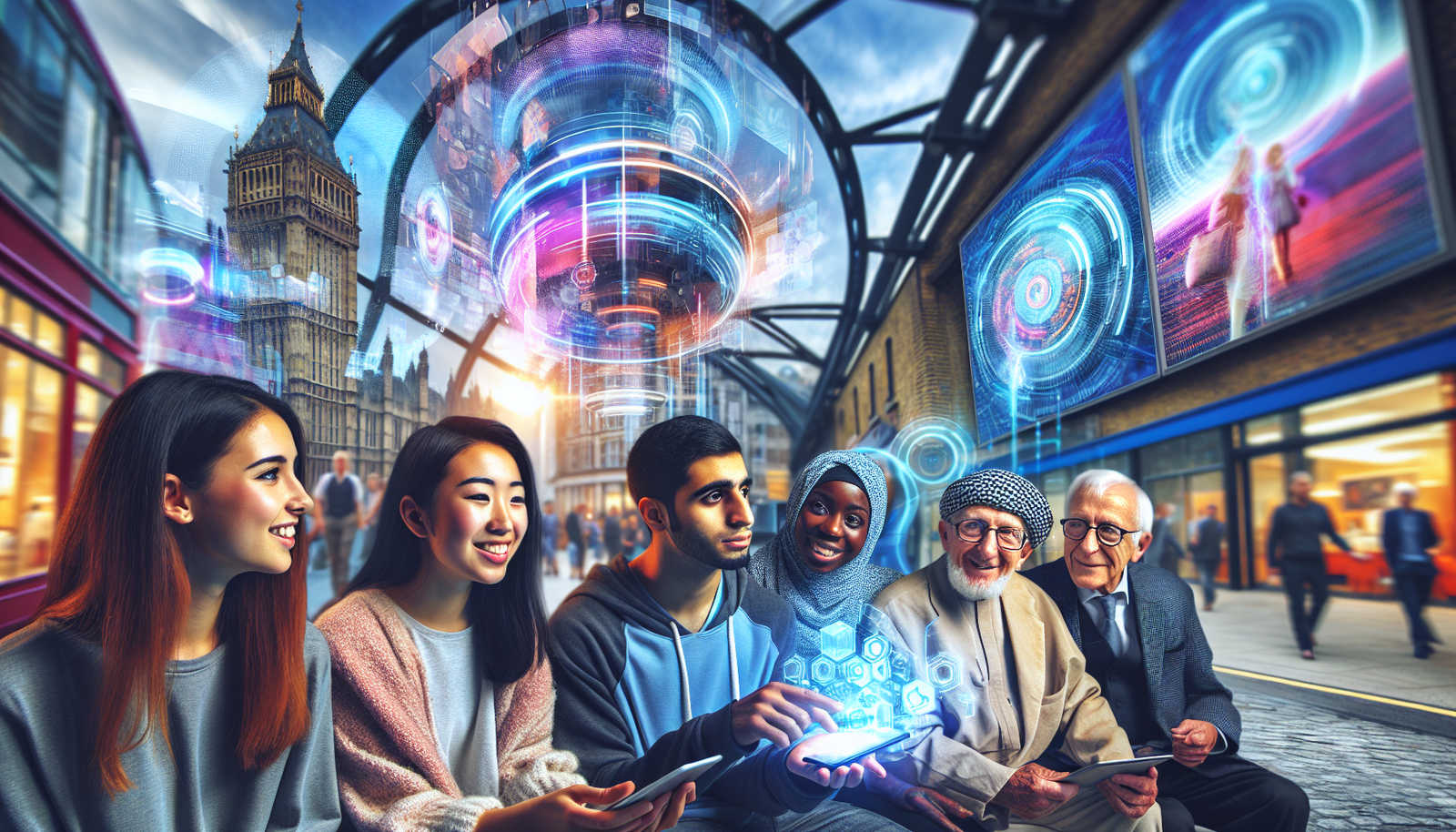The rapid rise of generative AI among Britons raises questions about its sustainable viability. Statistics reveal a massive adoption of these technologies by consumers, but at what cost to the environment? The question of ecological impact is becoming urgent as data centers consume colossal amounts of energy. To think that AI can transform our daily lives without consequences is a delicate illusion to dispel. In light of this reality, the need for transparency and energy efficiency becomes glaringly apparent.
The use of generative AI is intensifying among Britons
A survey conducted by CloudNine PR reveals that 83% of British adults are familiar with generative AI tools. Of these individuals, 45% want companies to communicate clearly about the environmental costs associated with these technologies.
The debate on the sustainability of AI technologies
The energy consumption of data centers raises sustainability questions. With increasing demand for generative AI tools, an intense discussion emerges surrounding their ecological footprint.
The carbon footprint of generative AI systems
Every request generated by AI relies on energy-hungry infrastructures. Data centers power both the training of language models and responses to users. A simple generative AI request consumes up to ten times more energy than a Google search.
The figures are alarming. If the 9 billion daily requests on Google were replaced by generative AI tasks, it would equate to the annual electricity consumption of 1.5 million residents of the European Union. Morgan Stanley forecasts a 70% increase in energy needs related to generative AI by 2027.
The growing demand for eco-friendly AI practices
The survey also shows that British consumers are increasingly aware of the environmental implications of AI. Nearly one in five respondents do not trust AI providers to manage their ecological impacts responsibly. Among regular users, 10% are willing to pay more for products that prioritize energy efficiency.
Interestingly, 35% of respondents believe that generative AI tools should actively remind users of their environmental impact. This proactive approach could encourage more thoughtful usage and pressure companies to adopt more sustainable technologies.
Initiatives to tackle the environmental challenge
Companies and policymakers are beginning to address these concerns. In the United States, the Artificial Intelligence Environmental Impact Act has been recently proposed. This legislation aims to standardize methods for measuring and reporting carbon emissions by AI companies.
Major players in the tech industry, such as Salesforce, are strongly supporting laws that require uniform methods for assessing the carbon footprint of AI. Practical solutions for mitigating the environmental impact of generative AI are also being highlighted, such as adopting energy-efficient hardware and using renewable energy sources.
Efforts to make generative AI more sustainable require urgent commitment. Uday Radia, owner of CloudNine PR, emphasizes that generative AI has immense potential to improve our daily lives. The question remains: how can we make it sustainable before it’s too late?
(Photo by Unsplash)
Also read: The AI Revolution: Redefining Data Centers and the Digital Landscape.
Tags: AI, Generative AI, Research, United Kingdom
Frequently Asked Questions about Generative AI Use in the UK
What is generative AI and how is it being used by Britons?
Generative AI refers to algorithms capable of creating content such as text, images, or videos. In the UK, it is primarily used in sectors like education, marketing, and customer service, where tools like ChatGPT and DALL-E are becoming popular for automating tasks and generating personalized content.
What are the main benefits of generative AI for British businesses?
British businesses benefit from generative AI through increased efficiency and productivity. These technologies allow for the automation of repetitive tasks, generating data analyses, and creating content tailored to customer needs, thus improving the user experience.
Are there environmental concerns regarding the growing use of generative AI in the UK?
Yes, the rise of generative AI raises concerns due to its high carbon footprint. The data centers powering these systems consume enormous amounts of energy, fueling the debate on sustainability and the need for more eco-friendly practices in the development of AI technologies.
How do British consumers perceive generative AI practices related to sustainability?
More and more British consumers are aware of the environmental impact of generative AI. Many want companies to be transparent about the environmental costs associated with these technologies and wish to support more sustainable alternatives.
What are the risks associated with the widespread use of generative AI?
The main risks include misinformation, privacy violations, and over-reliance on AI for decision-making. Additionally, concerns regarding the quality of training data can also lead to biases in the responses generated by these systems.
What efforts are being made to make generative AI more sustainable in the UK?
Diverse companies and government organizations are starting to take initiatives to standardize the measurability of the carbon footprint of AI technologies. This includes adopting energy-efficient hardware and practices that promote the use of renewable energies.
What types of regulations could influence the future of generative AI in the UK?
Potential regulations could impose standards on the transparency of AI development practices and the environmental impacts of technologies. This could include requirements for companies to report on carbon emissions and the responsible use of resources.
How could generative AI evolve in the coming years in the UK?
Generative AI is expected to continue evolving with technological advancements, facilitating better personalization and integration across various sectors. However, sustainability and responsibility will remain central topics in its implementation.






